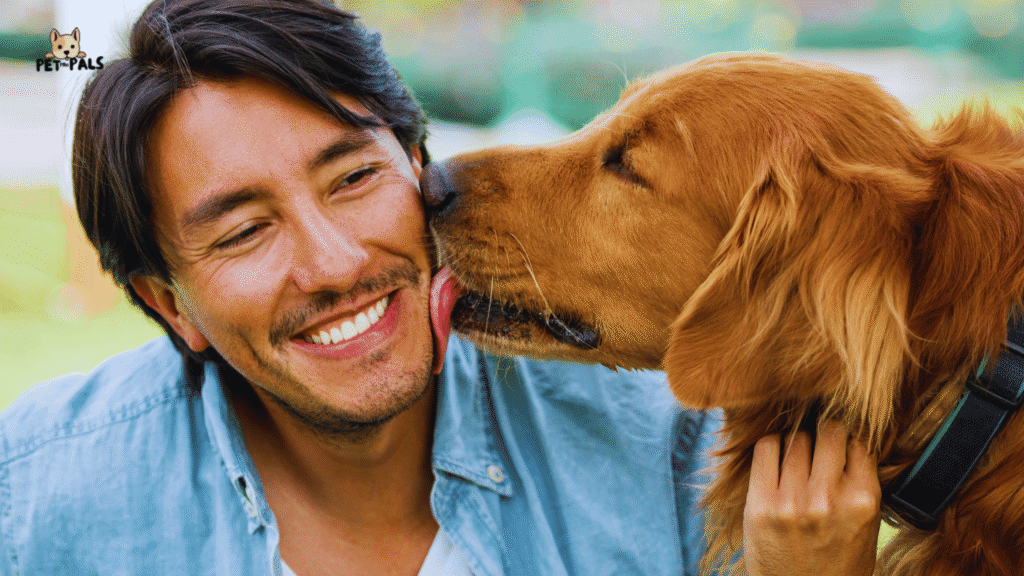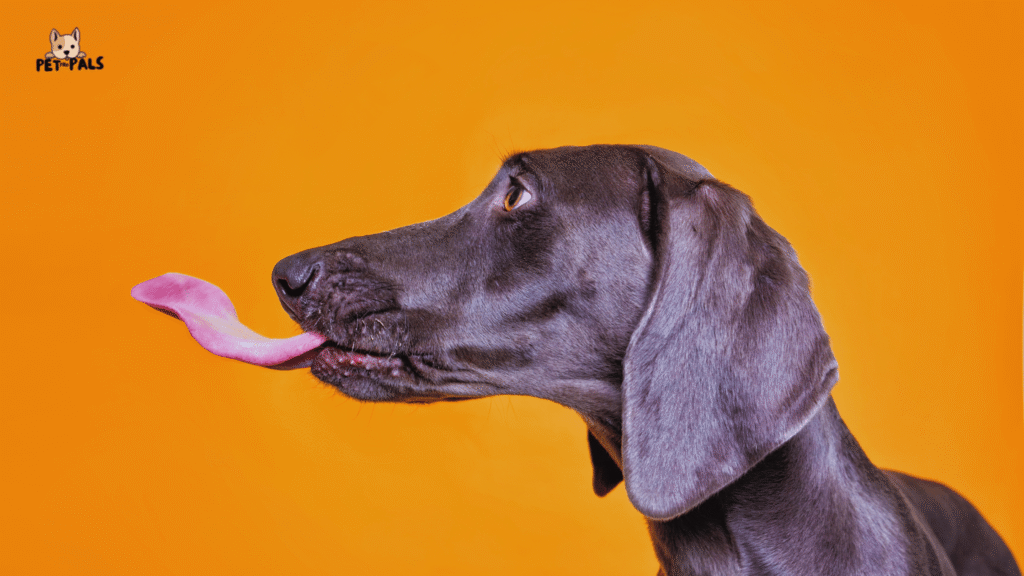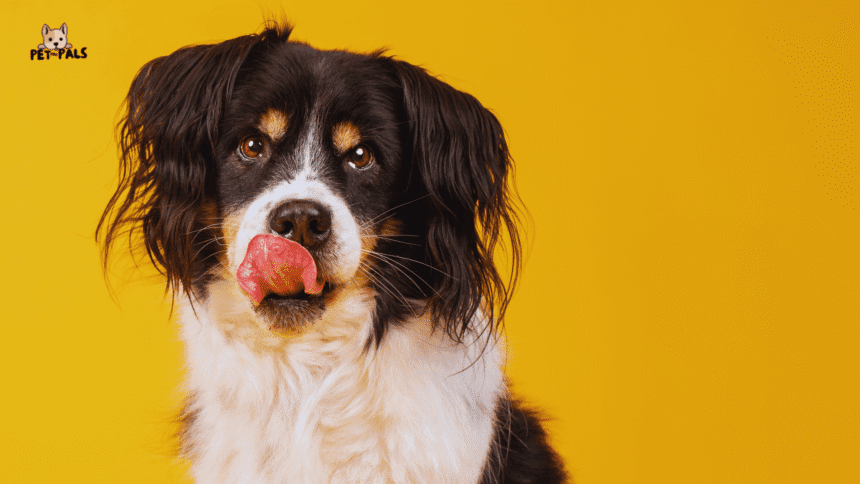You’re sitting down to relax, but your dog won’t stop licking your feet or hands. It’s funny at first, but it becomes a problem when it becomes an obsession. Excessive licking can be both frustrating and puzzling, especially when it interrupts your day or creates awkward situations.
While some level of licking is normal for dogs, when it becomes excessive, it may indicate something more serious, whether it’s anxiety, boredom, or an underlying health issue. Research has shown that excessive licking is often linked to stress and anxiety in dogs, with studies such as one by the American Veterinary Medical Association (AVMA) suggesting that it can be a form of self-soothing behavior in response to discomfort or emotional distress.
As a pet owner, it’s important to understand the reasons behind your dog’s behavior before taking action. In this article, we’ll explore practical and effective tips to help stop your dog from licking excessively while ensuring your dog’s overall well-being and happiness.
Whether it’s setting boundaries or offering distractions, you’ll find solutions that work for both you and your furry friend.
Why Your Dog Licks Excessively?

Understanding why your dog licks excessively is key to addressing the behavior effectively. One of the most common reasons for excessive licking is physical discomfort. Dogs may lick to relieve itching caused by allergies, skin irritation, or even injury.
According to a study published by the American College of Veterinary Dermatology, skin allergies are one of the top causes of excessive licking, particularly when dogs are exposed to allergens like pollen, dust, or certain food ingredients.
In some cases, licking serves as a self-soothing mechanism, helping dogs calm themselves when stressed or anxious. Dr. Karen Overall, a veterinary behaviorist, suggests that licking in dogs can often be a response to anxiety, particularly when left alone or in unfamiliar situations.
On the other hand, licking can also be a learned behavior. Dogs are highly social animals, and they often use licking to communicate, seek attention, or show affection. If your dog gets positive reinforcement, such as petting or attention, when licking, they may repeat the behavior, thinking it’s a way to receive love or care.
Understanding the “why” behind your dog’s licking is crucial for finding the right approach to stopping it. Once you pinpoint the root cause, whether it’s physical or behavioral, you can implement the right strategies to address it while ensuring your dog’s well-being.
Rule Out Health Problems
Before jumping into behavior-based solutions, it’s essential to rule out any potential health problems that could be contributing to your dog’s excessive licking. Common medical causes include skin allergies, fungal infections, or even pain from injuries.
Allergies can lead to itching and discomfort, prompting your dog to lick their paws or specific body areas to soothe the irritation. Fungal infections, particularly in areas with moist skin folds, can also cause persistent licking. Additionally, dogs may lick a specific spot if they’re experiencing pain or discomfort, like from arthritis or a recent injury.
If your dog’s licking becomes excessive or is accompanied by symptoms like redness, swelling, or changes in behavior, it’s crucial to consult with a veterinarian. These could be signs of a medical condition that requires professional attention. A vet will conduct a thorough examination, potentially including tests for allergies, infections, or other health issues, and provide the proper treatment.
Addressing health concerns first ensures that you’re not overlooking a serious condition, and it allows you to focus on behavioral solutions if the licking is not medically related.
Provide Enough Mental and Physical Stimulation

One of the most effective ways to reduce excessive licking is by providing your dog with enough mental and physical stimulation. A lack of exercise can lead to unwanted behaviors, including licking, as dogs often resort to these actions to release pent-up energy.
Regular walks, playtime, or even dog sports can help burn off excess energy and reduce the likelihood of excessive licking. Physical activity not only keeps your dog fit but also helps to prevent boredom, a major trigger for repetitive behaviors.
Mental stimulation is equally important. Dogs need mental challenges to keep their minds sharp and engaged. Puzzle feeders, interactive toys, and training sessions are great ways to keep your dog’s brain busy while also providing a sense of accomplishment. Engaging your dog in new tricks or obedience training can help focus their energy in a positive direction.
Offering a variety of activities, such as games, exercise, and mental challenges, ensures that your dog’s needs are met on multiple levels. A well-exercised and mentally stimulated dog is less likely to engage in excessive licking or other destructive behaviors, ultimately contributing to a happier, healthier pet.
Redirect the Behavior to Positive Alternatives
Redirecting your dog’s excessive licking to positive alternatives is an effective way to manage the behavior. One of the simplest ways to do this is by providing chew toys or treats. When your dog starts licking, offer them a chew toy instead.
Chewing is a natural and satisfying behavior that can help divert their attention away from licking, while also promoting healthy dental habits. You can also give them a treat to encourage the switch to more appropriate behaviors.
Training commands like “sit” or “leave it” can also be helpful in redirecting your dog’s focus. When you notice your dog starting to lick excessively, immediately issue a command that redirects their attention. Reinforcing these commands with praise or rewards will help them associate stopping the licking with positive outcomes.
Consistency is key when redirecting behavior. It’s important to remain patient and consistent in your approach. If your dog receives mixed signals, they may continue to engage in licking as a way of seeking attention or comfort.
By maintaining a steady routine of redirection, your dog will gradually learn which behaviors are acceptable, ultimately reducing excessive licking.
Create a Relaxing Environment
Creating a relaxing environment for your dog can significantly reduce anxiety-induced licking. Dogs thrive on comfort and routine, and having a structured daily schedule can help them feel more secure.
Establishing a calm environment, particularly at bedtime, helps your dog understand when it’s time to wind down. This predictability can alleviate stress and reduce the likelihood of anxiety-driven behaviors like excessive licking.
Comforting behaviors can also play a significant role in calming your dog. Massaging your dog’s paws or gently rubbing their ears can provide comfort and help them relax. Providing a cozy, designated bed or blanket offers a safe space where your dog can retreat and unwind. These calming rituals can ease stress and help break the cycle of anxiety-related licking.
If your dog’s licking is related to separation anxiety, it’s important to address the root cause. Gradual crate training and desensitization can help your dog become more comfortable being alone. Start by leaving your dog for short periods and gradually increasing the time away. Consistent practice can help reduce their anxiety over time and prevent excessive licking as a coping mechanism.
When to Seek Professional Help
If you’ve tried self-help methods and your dog’s excessive licking continues, it may be time to seek professional help. A certified dog trainer or behaviorist can assess your dog’s behavior and provide tailored training solutions. They can help you address any behavioral patterns, such as licking as a way to seek attention or cope with anxiety, and guide you through effective techniques to redirect the behavior.
If the licking becomes persistent and disruptive, or if it’s accompanied by other concerning symptoms like changes in behavior, it’s crucial to consult an expert. Persistent licking could be a sign of deeper issues, such as separation anxiety or underlying medical conditions that require professional intervention.
Seeking guidance from a veterinarian, trainer, or behaviorist ensures that your dog receives the proper care and support, helping to restore harmony in your home.
Conclusion
Addressing excessive licking begins with understanding the cause behind the behavior. Start by ruling out any health issues, such as allergies or infections, and provide your dog with enough physical and mental stimulation.
Redirecting their behavior to positive alternatives, like chew toys or training commands, is key to curbing the licking. While licking is a natural behavior for dogs, when it becomes excessive, it’s important to take steps to ensure your dog’s health and happiness.
We encourage you to monitor your dog’s behavior closely and take the necessary steps to address excessive licking. If needed, seek professional help from a vet, trainer, or behaviorist to ensure your dog is living a balanced, happy life. By staying proactive, you can improve your dog’s well-being and create a more peaceful environment for both of you.
FAQs Section
Why is my dog licking all of a sudden?
Sudden excessive licking can be a sign of various issues, such as allergies, anxiety, or pain. If your dog’s licking is new or has increased in frequency, it’s important to rule out any health problems first. If there are no obvious medical causes, the behavior may be linked to stress, boredom, or a change in routine. Consulting with a veterinarian or professional trainer can help you identify the root cause.
How do I stop my dog from licking the carpet?
Carpet licking can be a sign of boredom, anxiety, or a compulsion. To stop it, try increasing your dog’s mental and physical stimulation. Provide more playtime, interactive toys, and puzzle feeders to engage their mind. If the behavior persists, consider training commands like “leave it” to redirect their attention. Ensure your dog has a comfortable space to relax, and avoid reinforcing the licking by giving attention when they do it.
Can licking be a sign of boredom?
Yes, dogs often lick when they are bored or under-stimulated. Licking becomes a self-soothing behavior when they don’t have enough to occupy their mind or body. Regular exercise, play sessions, and mental challenges can help reduce licking caused by boredom. If the behavior continues, it might be useful to consider behavior training or consult a vet.
Why does my dog lick me when I’m not paying attention?
Dogs may lick their owners to seek attention, affection, or to communicate. If you’re not paying attention, your dog may lick to grab your focus, showing their need for interaction. It can also be a sign of affection or an expression of anxiety. Redirecting the behavior with commands or providing positive reinforcement when they behave calmly can help reduce excessive licking.

